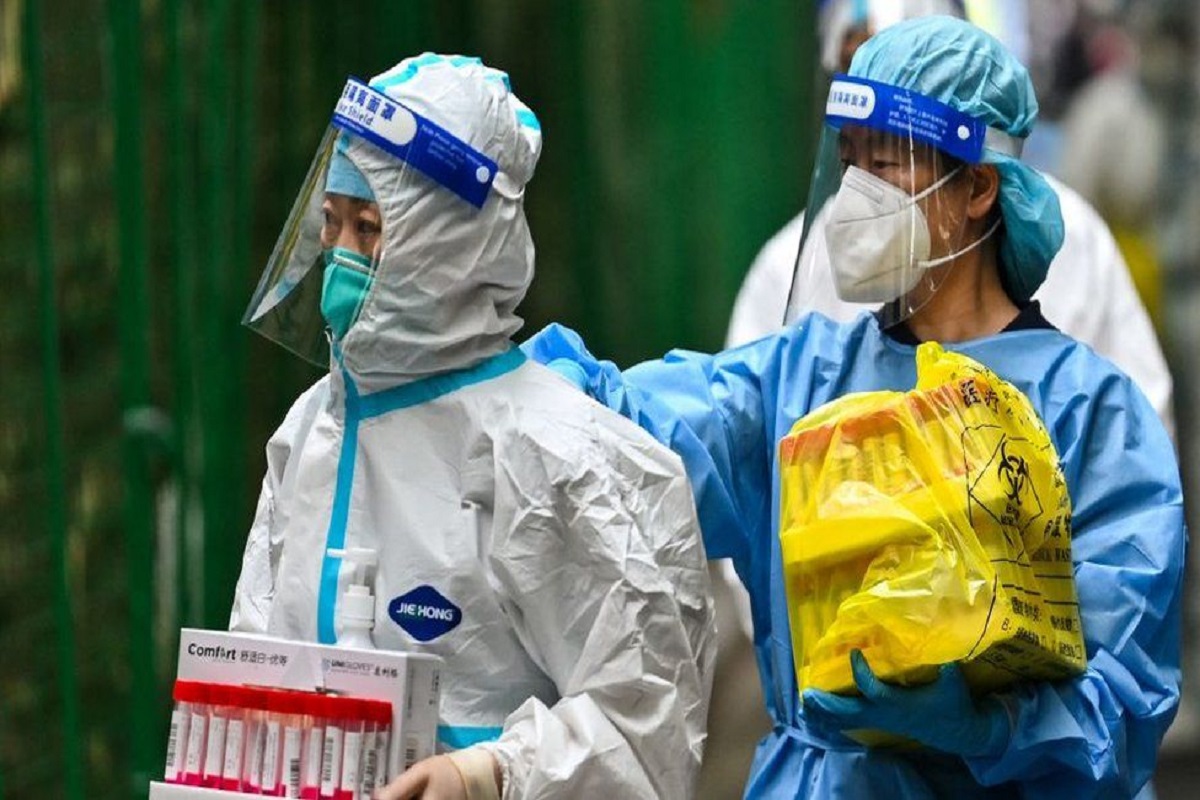China expresses solidarity with flood victims; announces relief assistance
Chinese President Xi Jinping and Premier Li Keqiang have expressed their complete...

China’s COVID curbs damage youth mental health
Zhang Meng collapsed in December in Hong Kong. Repeated COVID lockdowns at her Beijing university drove the 20-year-old to despair.
The lockdowns kept her from seeing her friends. She had limited access to the canteen and showers. Zhang, who seeks in-person social interaction, said the limits “removed the safety net that was keeping me up”
Her melancholy and anxiety were diagnosed that month.
Yao, 20, experienced his first meltdown as a high school boarder, failing to understand lockdown procedures. He cried so hard in a school toilet that “my insides were crying”
Yao attempted suicide in Beijing in 2021, unable to overcome his sadness and disappointed he hadn’t completed the courses he wanted for fear of offending his father.
China uses arguably of the world’s strictest and most frequent lockdowns to stamp out COVID outbreaks, stating it saves lives and pointing to its low pandemic death toll of 5,200.
Zhang’s and Yao’s experiences illustrate that the policy’s impact on mental health is already taking a toll.
“China’s lockdowns have had an enormous human cost, with mental-ill ness harming China’s culture and economy for years to come,” claims a June Lancet editorial.
Experts concern for the mental health of teenagers and young people, who are more vulnerable due to their age and lack of control over their life. They also face higher educational and economic demands than previous generations.
Potentially many teens are affected. In 2020, the Education Ministry anticipated that 220 million Chinese children and teens were imprisoned owing to COVID. Reuters requested an updated figure and comment but received neither.
COVID limits have forced teens into dangerous circumstances.
During Shanghai’s two-month harsh lockdown this year, some 15- to 18-year-olds had to stay in hotels.
Frank Feng, vice principal at Lucton, an international school in Shanghai, told Reuters, “They had to cook for themselves and had no one to talk to.”
Data on juvenile mental health in China, lockdowns, and the pandemic are scarce but dismal.
A survey of 39,751 Chinese junior and senior high school students learning remotely during lockdowns was published in January. Suicidal ideation is when a person thinks they would be better off dead, but doesn’t intend to kill themselves.
Searches for “psychological counselling” on Baidu tripled in the first seven months of 2022 compared to the same time a year earlier.
Many teens’ exam years coincide with COVID lockdowns. Desperation to avoid missing a life-changing exam due to COVID or being a close contact has many families isolated months before exams, teachers said.
Unemployment exacerbates academic pressure. As business hiring slows owing to the pandemic and regulatory crackdowns on the IT and tutoring industries, urban youth unemployment has climbed to 19.9%, a record high.
Due to China’s 1980-2015 one-child policy, most students are only children and will have to support their parents.
70% of 4,500 young individuals surveyed by Fudan University reported anxiousness.
Pandemic and lockdowns may be fueling disaffection with the enormous pressure to achieve ahead in life, symbolised by the “laying flat” trend that gained social media steam in China last year as young people embraced the idea of doing the bare minimum to get by.
Twenty years?
The Education Ministry has introduced mandatory mental health classes at colleges and increased the number of school counsellors, therapists, and psychiatrists.
Mental health has just garnered attention in China in the last 20 years, and efforts to place counsellors in schools are new. Last year, few schools had one. Its June 2021 guidelines provide for 1 counsellor per 4,000 kids.
State media also covered it.
Lu Lin, president of Peking University’s Sixth Hospital, told China Daily on June 6 that COVID’s “toll on people’s mental health could last beyond two decades.”
A third of homebound individuals suffered sadness, anxiety, or insomnia in early 2020, he added.
Lu believed most would recover when an outbreak decreases, but 10% wouldn’t return to normal. He said he had teenage patients who developed gaming addiction, had difficulties sleeping, and remained downcast and reluctant to go outdoors.
Lockdowns and melancholy wrecked Zhang’s worldview. Disillusionment with how lockdowns are handled spurred her interest in studying overseas.
“This emotion is slowly fading from when I graduated high school. I don’t trust the government anymore since I can smell masks and sanitizer in my bones.”
Catch all the Business News, Breaking News Event and Latest News Updates on The BOL News
Download The BOL News App to get the Daily News Update & Live News.